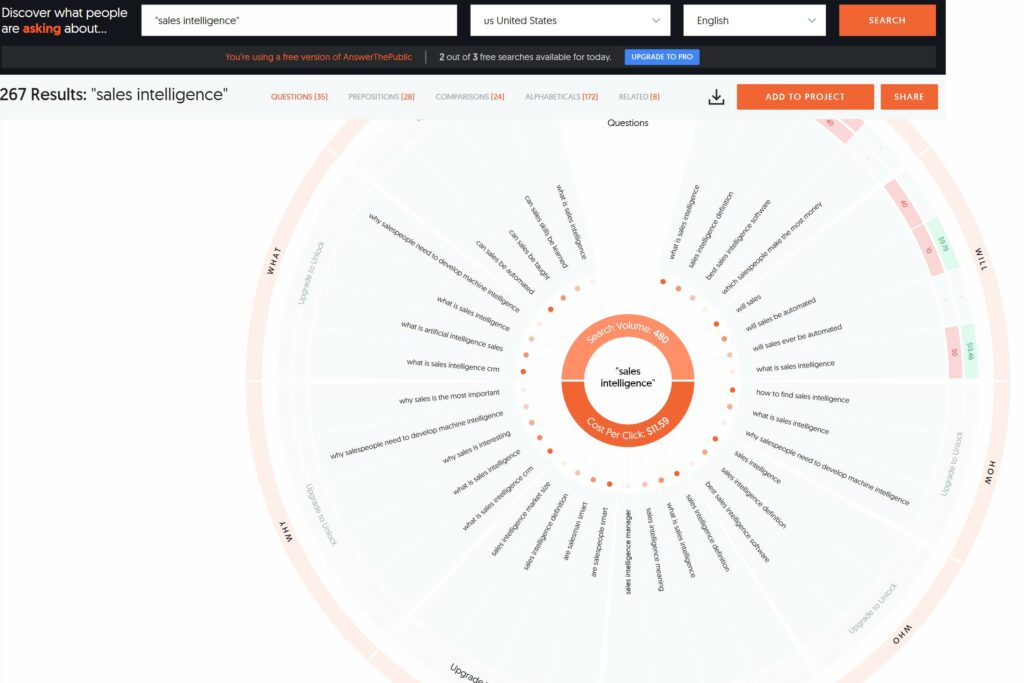Establishing topical authority is a critical component of content marketing and SEO success. It involves researching your topic thoroughly, creating quality content that provides value to readers, promoting it strategically across multiple channels, and measuring the results of your efforts.
By leveraging the power of topical authority, you can distinguish yourself from your competitors and maximize visibility for your brand. And this applies whether you’re just starting out or already have an online presence.
Let’s explore what establishing topical authority entails in more detail so that you can leverage its power for long-term SEO success.
- What is Topical Authority?
- What are the Benefits of Topical Authority?
- How to Establish Topical Authority?
- Conducting Research for Topical Authority
- Creating Quality Content for Establishing Topical Authority
- Promoting Your Content Strategically for Establishing Topical Authority
- Measuring the Success of Your Topical Authority Efforts
- Additional FAQs in Relation to Establishing Topical Authority
- Conclusion
What is Topical Authority?
Topical authority is an SEO concept that indicates the capacity of a website or page to be rated highly for subjects associated with its material.
It’s based on the idea that search engines (especially Google) use algorithms to determine how relevant and authoritative a website is on specific topics, which can help boost its rankings.
To establish topical authority, businesses and brands must create quality content that thoroughly covers their niche and promotes it strategically across various channels.
For search engines like Google to accurately assess how relevant and authoritative your website is on specific topics, they look at factors such as keyword usage, backlinks from other sites, social media engagement, etc.
Suppose your site contains comprehensive information about a particular topic (or multiple topics). In that case, it has more chances of being seen as an “authority” by search engine algorithms. It can help improve your organic rankings over time since you are considered an expert source in your industry.
What are the Benefits of Topical Authority?
Establishing topical authority has its perks/benefits, including increased visibility for your brand/website, higher ranking potential, better customer trust, and improved user experience, which can lead to more conversions/sales.
Additionally, establishing topical authority will give you a leg up when creating new content pieces since you’ll already understand what type of material works best within your industry or niche market.
By leveraging the right keywords and using active voice with idioms and colloquialisms in your writing style, you can reach a wider audience while showing off your advanced level of professional IQ.
How to Establish Topical Authority?
Establishing topical authority involves researching relevant topics within your niche market and creating high-quality content around them while optimizing it properly so that search engine crawlers can easily index them.

It would be best to build relationships with influencers in the same space so they can share links back to your pages or even guest post on them, showing credibility to both users and search engine algorithms.
Finally, measure performance metrics using analytics tools such as Google Analytics to know exactly where traffic is coming from and adjust strategies accordingly if needed.

Gaining expertise in your field is necessary for any content promotion and SEO plan, so it’s essential to recognize what that involves and how to achieve it.

Researching your topic thoroughly will help you identify relevant topics and keywords and analyze competitors’ keyword strategies, giving you the tools necessary to establish topical authority.
By leveraging the right keywords, actively engaging with influencers in your niche market, and optimizing content for search engine crawlers, you can establish topical authority to improve your website’s organic rankings and visibility.
Doing so successfully requires some elbow grease to research relevant topics within your industry, create high-quality content around them using an authoritative voice, and measure performance metrics such as those found on Google Analytics.
Conducting Research for Topical Authority
Researching your topic is the first step in establishing topical authority.
Uncovering the correct subjects and expressions to aim for can help you craft material that appeals to your readership while also offering search engine optimization (SEO) advantages.
Identify topics and keywords relevant to your business or industry by:
- Gathering customer feedback
- Examining industry trends
- Monitoring competitors’ actions, and
- Exploring other sources of information.

Start by creating a list of potential topics based on customer feedback, industry trends, competitors’ activities, and other sources of information.
Once you have identified several potential topics for discussion, begin researching relevant keywords associated with those topics using keyword research tools such as AHREFS or SEMRush.

It will give you an idea of which terms are most popular among users when searching for information about these particular subjects online.
Analyzing Competitors’ Content Strategies:
It’s also helpful to analyze the content strategies used by your competitors to gain insight into their approach to marketing their products or services online.
For example, observe the forms of material they generate – articles, videos, infographics – and how frequently they post new content, and which platforms they employ for promotion (e.g., social media).
By understanding how successful companies in your niche market themselves online, you can develop more effective strategies for reaching out to potential customers yourself.
To establish topical authority, researching your topic is essential.
Then, moving on to the next step of creating quality content, it is important to leverage visuals and optimize for SEO purposes to produce engaging content that resonates with readers.
Researching relevant topics and keywords, analyzing competitors’ content strategies, and using keyword research tools are essential to establishing topical authority.
Uncovering successful online marketing techniques from rivals can assist in constructing a content approach that will aid your business in reaching its desired viewers.
Creating Quality Content for Establishing Topical Authority
Writing engaging content that is relevant to your audience is essential for establishing topical authority. It means crafting copy that speaks to your target market and aligns with the topics and keywords associated with your brand.
To ensure content relevance, consider using an online keywords research tool such as Google Keyword Planner or Google AutoSuggest to identify popular terms related to your industry.

Additionally, create content that adds value and addresses common questions or concerns of readers within the niche.

For example, if a SaaS company offers customer relationship management software, develop blog posts about best practices for CRM implementation or tips on maximizing ROI from CRM investments.

Optimizing content for SEO purposes can be daunting due to ever-changing search engine algorithms; however, it’s critical for increasing visibility in organic search results.
Focus on incorporating relevant keywords into titles and headings while ensuring they flow naturally within the text.
However, overstuffing pages with too many keywords can result in penalties from search engines like Google.
Furthermore, include internal links, when possible, throughout each post, which will help direct visitors through other areas of your website while boosting page rankings over time.
Creating quality content is essential for establishing topical authority, and promoting your content to maximize its visibility strategically is critical.
You can ensure that your content reaches the right audience by utilizing social media platforms effectively, building relationships with influencers in your niche, and developing a comprehensive link-building strategy.
To establish topical authority, one must create relevant and engaging content for their target audience.
It includes using keyword research tools to identify popular terms related to the industry and optimizing content for SEO purposes, such as naturally incorporating keywords into titles and headings.
Ultimately, this will help boost page rankings while increasing visibility in organic search results.
Promoting Your Content Strategically for Establishing Topical Authority
Promoting content strategically is essential to establishing topical authority.
Utilizing social media to connect with key influencers and power users in your industry can be a powerful tool for amplifying the reach of your message.
Creating a thorough link-building plan is critical to improving visibility and trustworthiness and creating more potential customers for your company.
If budget permits, investing in promoted posts or sponsored ads on various social networks can be a smart move. It will guarantee greater reach among your desired audience than relying solely on organic methods.
Knowing which platform works best for the content you’re looking to promote key. Different audiences use different channels, so it’s essential to recognize where your target market hangs out online.
- LinkedIn is ideal for B2B businesses wanting to network with other professionals or recruit new employees.
- Instagram caters more to creative industries that want to showcase their products or services visually.
- Twitter is an effective newsfeed and customer service channel.
- Facebook is perfect for organic reach campaigns and paid advertising initiatives.
Leveraging the influence of industry professionals such as bloggers, vloggers, and podcasters can help boost awareness of your brand by connecting with them through comments on their posts or messages over email.
It could also lead to collaboration opportunities like guest blogging or interviews which create backlinks from high-authority sources, thus improving search engine rankings (SEO).
Additionally, forming mutually beneficial partnerships could result in free promotion across multiple channels depending on the size of each person’s following/subscriber base. All of this can help with skyrocketing your brand recognition.
Strategically pushing your content can help you reach the right people and construct relationships with influential figures in your field.
In addition, it is essential to measure the success of these efforts by tracking performance metrics using analytics tools and evaluating the impact of campaigns on traffic and conversions.

You can establish topical authority in your niche by utilizing social media platforms and developing a comprehensive link-building strategy.
Promote content strategically to gain visibility, build credibility, generate leads through sponsored ads or promoted posts, and form mutually beneficial partnerships with industry influencers for free promotion across multiple channels.
Measuring the Success of Your Topical Authority Efforts
Measuring the success of your content marketing and SEO efforts is essential to ensure that you are getting the most out of your strategies.
Utilizing analytics platforms like Google Analytics, SEMrush, and Moz can be beneficial in ascertaining the effectiveness of your campaigns by monitoring performance metrics.
To thoroughly understand your campaigns’ success, it is important to consider both quantitative and qualitative metrics.
Evaluating the impact of your campaigns on traffic and conversions is also key for assessing their success or failure.
Look at factors like organic search rankings, click-through rates, referral sources, lead generation rate, sales conversion rate, etc., to gauge whether they’re working as expected.
Additionally, it’s helpful to analyze competitor performance to compare yourself against them regarding visibility and market share gains/losses over time.
Additional FAQs in Relation to Establishing Topical Authority
How Do You Create a Topical Authority?
Creating a topical authority requires research and strategy.
First, investigate the themes related to your business that you would like to be a specialist in.
Once you have identified the topics, craft compelling and high-quality content to befit your position as an expert.
Optimizing for search engines and constructing backlinks are also necessary steps to take to boost your content’s online presence.
Finally, promote your content on social media platforms to further build credibility as a source of knowledge for those topics.
With consistent effort, you will eventually be seen as an authoritative figure within the industry.
Why Topical Authority is Important?
Search engines use topical authority to decide which sites are most pertinent for a specific inquiry, making it an essential element of content marketing and SEO.
In addition, it shows that your website has expertise in a particular topic, making it more likely to rank higher for related keywords.
Additionally, having topical authority can help build trust with readers looking for specific information.
Ultimately, a strong topical authority will lead to increased visibility and traffic from organic search results.
What are the Best Tactics to Get Backlinks of High Topical Authority?
The recommended tactics for getting backlinks of high topical authority are:
Produce content relevant to the industry and intended viewers, such as blog posts, whitepapers, case studies, infographics, and videos.
Creating content such as blog posts, whitepapers, case studies, infographics, and videos relevant to the target audience and industry.
Reaching out to industry influencers and requesting they promote your material on their social media accounts or, when suitable, include a link back from their website.
Guest blogging on other websites related to your niche with a link back to your website as part of the agreement between you and the host site owner/editorial team member(s).
Participating in online forums or communities where it’s possible to build relationships with potential partners who may be willing to give you a linkback when you produce valuable content they can use for their readership base, too (e.g., Quora answers).
Developing relationships with other websites in the same industry and offering to exchange links or content if it’s mutually beneficial for both parties.
Conclusion
By researching the topic, creating quality content, promoting it strategically, and measuring its success, you can create an effective strategy for achieving the goal of topical authority.
Establishing topical authority can be a valuable asset in any business’s marketing efforts with the right approach.
Grow your online presence and increase website traffic with content marketing and SEO solutions tailored to establish topical authority.
Leverage our expertise to create a comprehensive digital strategy to drive organic search engine results and increase lead conversions.
